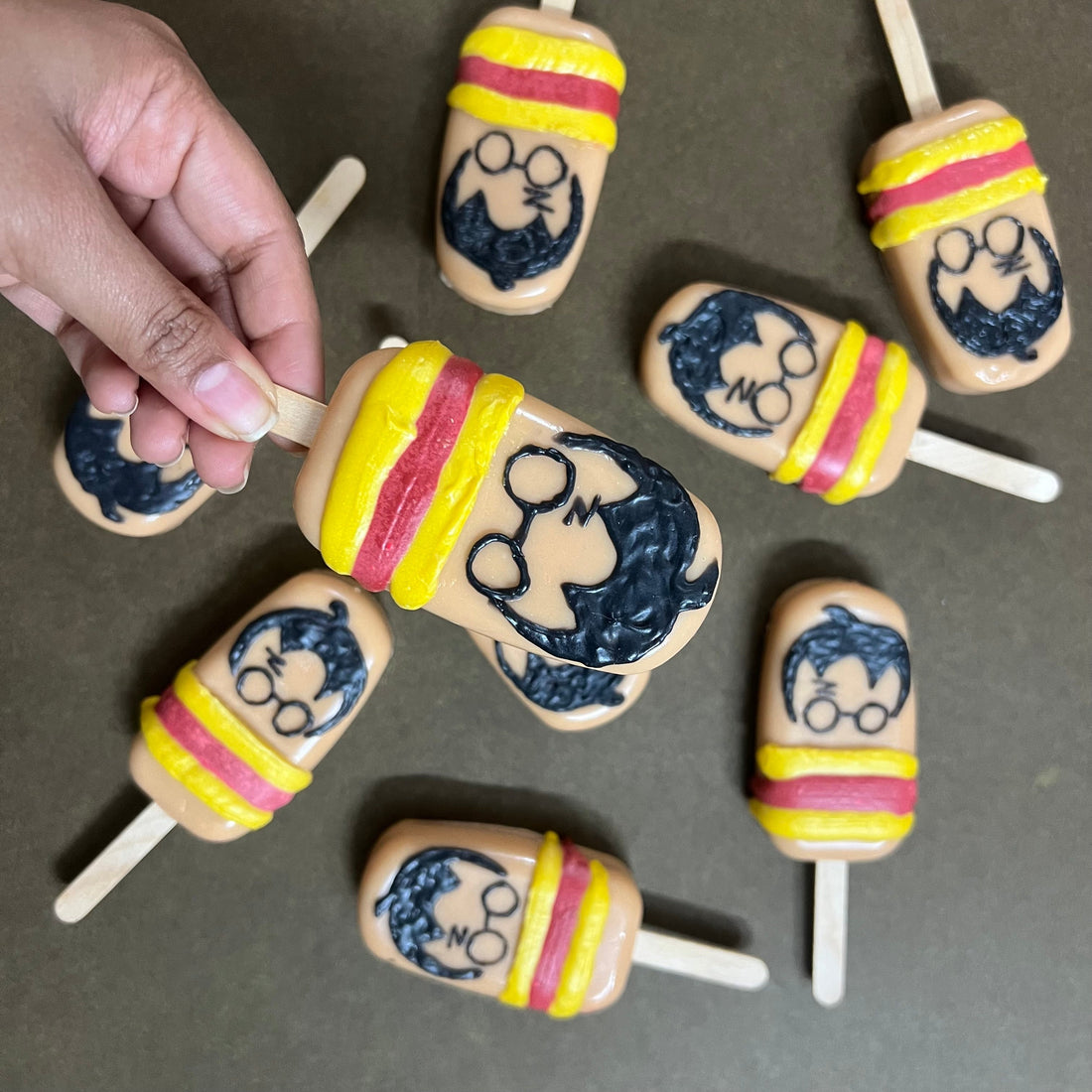
Handmade Soap Sweating & How to Fix It
Share
Handmade soap is a luxurious, eco-friendly way to pamper your skin, but sometimes, you may notice tiny droplets forming on the surface—a phenomenon known as handmade soap sweating or glycerin dew. At Salty Secrets, we craft natural, vegan, and organic soaps in Jodhpur, Rajasthan, that combine skincare benefits with artisanal craftsmanship.
Products like our Chamomile Mead Bar, Lavender Bliss Whipped Soap, and Hamburger Soap Bar are designed to nourish, but improper storage can lead to sweating. In this guide, we’ll explore what causes handmade soap sweating, how to fix it, and how to prevent it for Salty Secrets’ soaps. Whether you’re a soap enthusiast or a new buyer, this blog will help you keep your soaps fresh and sweat-free, ensuring they last their full shelf life.
What Is Handmade Soap Sweating?
Handmade soap sweating, often called glycerin dew, is the appearance of small water-like droplets on the surface of soap bars or whipped soaps. It’s a natural occurrence in cold-process soaps, like those from Salty Secrets, due to their high glycerin content. Glycerin, a natural humectant produced during the saponification process, attracts moisture from the air, causing condensation on the soap’s surface. This is especially common in humid environments, such as coastal areas of India or during monsoon season.
While sweating doesn’t affect the soap’s cleansing ability, it can:
- Make bars feel sticky or slimy.
- Cause scents (e.g., lavender in French Clay Bar) to fade faster.
- Lead to softening or texture changes in whipped soaps like Honey Dew Glow Whipped Soap.
- Create an unappealing appearance for gifting or selling.
Salty Secrets’ soaps, priced between ₹299 and ₹600, are crafted with care, but sweating can occur without proper storage. Let’s dive into the causes, solutions, and prevention strategies to keep your Coastal Clay Purity Bar or Confetti Soap Bar in top condition.
Causes of Handmade Soap Sweating
Understanding why your Salty Secrets soaps sweat is the first step to fixing and preventing it. Here are the primary causes:
1. High Glycerin Content
Salty Secrets’ cold-process soaps, like the Chamomile Mead Bar and French Clay Bar, retain natural glycerin, unlike commercial soaps that remove it for cost savings. Glycerin attracts moisture from humid air, causing droplets to form on soaps like the Hamburger Soap Bar.
2. Humid Environments
High humidity (above 50%) is a major culprit, especially in cities like Mumbai, Chennai, or Kolkata during monsoons. Soaps like the Coastal Clay Purity Bar absorb ambient moisture, leading to sweating, particularly if stored in bathrooms.
3. Improper Storage
Storing soaps in airtight containers, plastic wrap, or humid areas traps moisture, exacerbating sweating. For whipped soaps like Lavender Bliss Whipped Soap, improper sealing can allow humidity to soften the texture.
4. Temperature Fluctuations
Warm temperatures (above 25°C) increase air moisture, triggering glycerin dew on soaps like Confetti Soap Bar. Storing near heaters or in sunny spots can worsen the issue.
5. Incomplete Curing
Cold-process soaps require 4–6 weeks of curing to evaporate excess water. If curing is rushed, soaps like the Hamburger Soap Bar retain more moisture, making them prone to sweating. Salty Secrets ensures all soaps are fully cured before sale, but homemade batches may need extra care.
6. Essential Oils and Additives
Certain ingredients, like citrus oils in Citrus Splash Whipped Soap or honey in Honey Dew Glow Whipped Soap, are more hygroscopic (moisture-attracting), increasing the likelihood of sweating in humid conditions.
How to Fix Handmade Soap Sweating for Salty Secrets Products
If you notice sweating on your Salty Secrets soaps, don’t worry—it’s fixable! Here’s how to address glycerin dew for both cold-process bars and whipped soaps:
1. Dry the Soap Surface
For Cold-Process Soaps (e.g., French Clay Bar, Chamomile Mead Bar):
- Gently pat the soap with a clean, dry paper towel or cloth to absorb droplets.
- Place the soap in a well-ventilated area with low humidity (e.g., a bedroom closet) for 24–48 hours.
- Use a fan to circulate air around soaps like Confetti Soap Bar to speed up drying.
For Whipped Soaps (e.g., Lavender Bliss Whipped Soap):
- Wipe the surface with a dry cloth and reseal in its airtight tub.
- Place a silica gel packet inside the tub to absorb excess moisture.
- Pro Tip: Avoid rinsing the soap, as water can dissolve the surface and worsen softening.
2. Relocate to a Low-Humidity Environment
Move sweaty soaps to a cool, dry, dark place (15–25°C, below 50% humidity). For example:
- Store Coastal Clay Purity Bars in a closet with a dehumidifier.
- Keep Honey Dew Glow Whipped Soap in a dry bedroom, not a bathroom.
- In humid regions, run a fan or air conditioner to reduce moisture around Hamburger Soap Bars.
3. Use Absorbent Materials
Place silica gel packets, activated charcoal sachets, or dry rice in storage containers to absorb moisture. For Rose Petal Dream Whipped Soap, add a silica gel packet inside the tub to prevent softening.
4. Re-Cure if Necessary
If sweating persists, the soap may need additional curing:
- Place Chamomile Mead Bars on a ventilated rack in a dry, dark area for 1–2 weeks.
- Ensure bars don’t touch and flip weekly for even drying.
- Cover with cheesecloth to protect from dust while allowing airflow.
Note: Salty Secrets’ soaps are pre-cured, so this step is rare but useful for homemade batches or bulk orders.
5. Check for Rancidity
Sweating can sometimes mask rancidity (dreaded orange spots or off odors). Inspect soaps like French Clay Bar for:
- Orange/yellow spots (discard if widespread).
- Rancid smells (test a small piece; discard if unpleasant). If the soap lathers well and smells fine after drying, it’s safe to use.
How to Prevent Handmade Soap Sweating
Preventing glycerin dew is easier than fixing it. Follow these tips to keep your Salty Secrets soaps sweat-free:
1. Store in a Cool Dry, Dark Place
- Temperature: Keep at 15–25°C, away from heaters, windows, or humid bathrooms. Ideal for Confetti Soap Bars.
- Humidity: Maintain below 50% humidity using a dehumidifier or fan, especially for Lavender Bliss Wh pret Soap in coastal areas.
- Light: Store in a dark closet to protect scents in Citrus Splash Whipped Soap from UV fading.
- Ventilation: Ensure airflow to prevent moisture buildup around Hamburger Soap Bars.
2. Use Breathable Storage Containers
Cold-Process Soaps:
- Store French Clay Bars on open shelves or in cardboard boxes lined with parchment paper.
- Use slatted wooden crates or open-weave plastic baskets for Coastal Clay Purity Bars.
- Wrap in wax paper or cheesecloth for long-term storage (6+ months) to protect from dust while allowing airflow.
Whipped Soaps:
- Keep Honey Dew Glow Whipped Soap in its original airtight tub or a glass jar with a tight lid.
- Check monthly for moisture and add a silica gel packet if needed.
Avoid: Airtight plastic containers, plastic wrap (for bars), or uncoated metal surfaces, which trap humidity or cause oxidation.
3. Ensure Proper Curing
Salty Secrets’ cold-process soaps are fully cured for 4–6 weeks before sale, reducing sweating risk. If you’re making soap inspired by our recipes:
- Cure Chamomile Mead Bar-style soaps on a rack in a dry, ventilated area.
- Space bars apart and flip weekly to evaporate water.
- Store only after curing is complete (soap feels hard and dry).
4. Monitor Storage Conditions
- Check soaps every 2–3 months for sweating, softening, or rancidity.
- Use a hygrometer to monitor humidity, especially for Rose Petal Dream Whipped Soup in humid climates.
- Rotate stock (first-in, first-out) to use older Confetti Soap Bars first.
5. Daily Use Best Practices
- Use a draining soap dish for Coastal Clay Purity Bars to keep them dry between uses.
- Scoop Lavender Bliss Whipped Soap with a clean spatula to avoid introducing moisture.
- Cut Hamburger Soap Bars into smaller pieces for gradual use, storing extras in a dry place.
Pro Tip: For gifting (e.g., Diwali or weddings), store soaps in breathable containers until wrapping. Salty Secrets offers eco-friendly gift wrapping on saltysecrets.in.
Aslo Check:- What is The Use of Common Salt in Soap Industry
Does Sweating Affect Salty Secrets Soaps’ Performance?
Sweating doesn’t typically affect the cleansing or moisturizing abilities of Salty Secrets’ soaps:
- Cold-Process Soaps: French Clay Bar or Chamomile Mead Bar will still lather and cleanse effectively after drying.
- Whipped Soaps: Honey Dew Glow Whipped Soap may lose some fluffiness if softened, but it remains functional if stored properly.
However, prolonged sweating can:
- Fade scents (e.g., lavender in Lavender Bliss Whipped Soap).
- Cause texture changes, like stickiness in Confetti Soap Bars.
- Increase rancidity risk in humid conditions, especially for Citrus Splash Whipped Soap.
By addressing sweating promptly and storing correctly, you ensure your soaps remain luxurious and effective for their full shelf life (1–2 years for bars, 6–12 months for whipped soaps).
Also Read:- What Are The Top 10 Benefits of Soap?
Why Choose Salty Secrets’ Handmade Soaps?
Salty Secrets’ soaps are crafted with love and sustainability, making them worth protecting from sweating:
- Natural Ingredients: Vegan oils and essential oils (e.g., tea tree in Coastal Clay Purity Bar) ensure gentle, effective cleansing.
- Women-Led Artistry: Handmade by artisans, each bar reflects quality and empowerment.
- Eco-Friendly: Biodegradable packaging reduces waste, aligning with green living.
- Affordable Luxury: Prices from ₹299 make quality accessible.
- Customer Love: Reviewers praise the Lavender Bliss Whipped Soap for its “creamy texture” and Hamburger Soap Bar for its “fun, long-lasting design.”
Eco-Friendly Storage to Prevent Sweating
Salty Secrets is committed to sustainability, and your storage practices can reflect this:
- Reuse Materials: Use old cardboard boxes or wooden crates for French Clay Bars.
- Breathable Wraps: Opt for reusable cheesecloth or wax paper over plastic for Confetti Soap Bars.
- Minimal Packaging: Store soaps “naked” on shelves to reduce waste.
- Recycle: Repurpose containers for household use when not storing soaps.
By preventing sweating, you extend soap life, reduce waste, and support Salty Secrets’ eco-conscious mission.
Conclusion: Keep Your Salty Secrets Soaps Sweat-Free
Handmade soap sweating is a natural occurrence due to glycerin’s moisture-attracting properties, but it’s easily fixed and prevented with proper care. By drying sweaty soaps, storing in cool, dry, ventilated conditions, and using breathable containers, you can keep Salty Secrets’ Chamomile Mead Bar, Lavender Bliss Whipped Soap, and Hamburger Soap Bar fresh for their full shelf life. Visit saltysecrets.in to explore our collection, and follow our tips to enjoy sweat-free, luxurious lathering. With Salty Secrets, your soaps stay vibrant, effective, and eco-friendly—ready to elevate your skincare routine!
Frequently Asked Questions (FAQs)
1. What causes handmade soap sweating in Salty Secrets’ products?
Sweating, or glycerin dew, occurs due to high glycerin content in soaps like Chamomile Mead Bar, attracting moisture in humid environments, especially during monsoons.
2. How can I fix sweating on Salty Secrets’ cold-process soaps?
Pat soaps like French Clay Bar dry, place in a ventilated, low-humidity area for 24–48 hours, and use a fan to speed up drying.
3. Can I still use Salty Secrets’ soaps if they’re sweating?
Yes, sweating doesn’t affect cleansing. Dry soaps like Confetti Soap Bar with a cloth; they’ll lather and moisturize effectively after drying.
4. How do I prevent sweating in Salty Secrets’ whipped soaps?
Store whipped soaps like Lavender Bliss in airtight tubs in a cool, dry place. Add a silica gel packet to absorb moisture.
5. Does sweating affect the shelf life of Salty Secrets’ soaps?
Prolonged sweating may fade scents or increase rancidity risk, but proper drying and storage ensure soaps last 1–2 years (bars) or 6–12 months (whipped).
